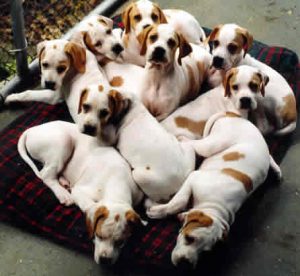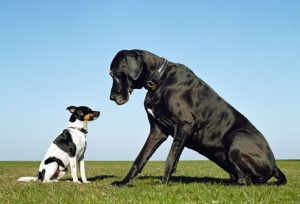10 VERY Important Things You Need to Know When Choosing a Dog or Puppy
Common wisdom says there is a dog breed for everyone. It is very important to choose a breed from the dog breeders that best fits your lifestyle and personality because you are making a commitment for more than a decade. All dog breeds have been bred for a purpose: from hunting, herding, guarding, rescuing, or for just sitting in your lap…
1. Choosing a Dog that Best Fits Your Lifestyle
choosing a dog breed
– Do you live in a house or an apartment?
– Do you live in a rural or urban area?
– Do you have a yard? What size? Is it fenced?
– Do you live alone or with a family?
– How much time are you willing to spend with your dog?
– How much of that time can be spent on exercising?
– What type of activities do I want to engage in with my dog?
– Is your home small or large?
– Are there going to be children around your dog?
– How much time will your dog stay alone at home everyday?
– How active are you?
– What is your budget for maintaining a healthy dog?
– How much time and effort are you willing to spend on grooming?
– Do you want a dog with long or short coat?
– How do you feel about a dog that sheds?
You need to ponder on these questions in order to have a healthy working relationship and many years of happy companionship with your four-legged friend. There are many places on the internet that will help you select the perfect dog breed by simply answering a questionnaire. A simple search on the internet for “selecting dog breed” will give you a plethora of options from reputable organizations. Also be sure to check the article that will show you how to understand if the dog has mastered the basic dog training.
2. Never rush to get a “trendy” dog
When the Disney Company released the 101 Dalmatians, the demand for Dalmatian puppies experienced a sudden surge and reputable dog breeders could not keep up. As a result many Dalmatians were bred carelessly in puppy mills by “backyard breeders”, resulting in unhealthy and poorly bred dogs. And soon thereafter, many Dalmatians ended up in rescue shelters or worse, were eventually euthanized prematurely. So it is very important to carefully choose what really fits your lifestyle and personality, and not just your flavor of the day. This cannot be stressed enough.
3. Dog Breeder or Shelter
Adopting from a shelter or rescue organization is a wonderful way to save a dog’s life and get a good pet. There are thousands of dogs in need of loving homes and companionship. Rescue organizations can often give some idea of the dog’s background and temperament, as well as their current health conditions and vaccination schedules. Almost all breeds have a related non-profit rescue organization. You can easily locate them on the internet by searching “rescue + breed name.”
Breed-specific rescue organizations can give excellent advice and guidance to facilitate the adoption process. Dogs are frequently less expensive when obtained this way. On the negative side, these dogs may come without papers, pedigree, health guarantee, or complete knowledge of breeding, background or potential trauma. They do present a somewhat greater risk in terms of health and quality. The best place to start on the internet if you wish to adopt is www.petfinder.com. You will have a selection of hundreds of dogs or puppies from shelter homes or shelter organizations, all within driving distance from your home.
Dog breeders require a lot of research on your part. Some breeders are nothing more than cruel puppy millers. Dogs obtained through pet stores and backyard breeders are frequently of poor quality, have health and genetic faults and can give you endless health problems, from constant visits to the vet, to excessive spending on medications. It is important that you go thoroughly through the breeder selection process in order to weed out irresponsible breeders.
how to find a dog breeder
A good breeder will also select puppy buyers carefully to ensure that all puppies go to appropriate homes. They will ask questions about your home (such as size, yard, pool, etc), family and work situation, as well as interest in dogs in general, and the chosen breed in particular.
4. Finding a Dog Breeder
It is important to locate ethical dog breeders who can provide written health guarantees and are willing to sign a contract. Never buy from pet stores (be pet smart), as responsible and ethical breeders will never sell to stores. Where do these pet stores get their puppies for sale? They get them from puppy mills that have little regard for breed conformation standards, diseases, genetic testing or dog care. Whether you decide on the dog adoption route from a rescue organization, or the purchase of a puppy from a dog breeder, you want to know that it is a healthy specimen. Also don’t forget to read the guide “How to raise a puppy“. The internet is a great resource for finding dog breeders, but you will still have to do your due diligence. Responsible breeders do care about the puppies they sell, and if you do your research carefully you should be able to find the right one.
5. Questions You Should Ask Breeders
While ethical breeders themselves will ask you questions to see if your home or lifestyle is fit for their puppies, here are some questions you can ask them:
–What are the congenital defects in this breed? A responsible breeder will answer this question straightforwardly and will never try to misguide you, but will tell you every remotely possible problem in the breed, from cherry-eye syndrome to gastric torsion to hip dysphasia, which are sadly very common. Ask your breeder whether they have a certificate from the Orthopedic Foundation for Animals (OFA), which often times requires early X-Rays to determine whether there are genetic defects. The OFA provides expert, unbiased evaluation and knows exactly what to look for. Insist on documentation on the lineage of the puppy.
how to find dog breeders
— May I see the Sire and Dame? In many case you will not be able to see the Sire. That’s because responsible puppy breeders often look for stud services in remote lineage in order to improve the breed via genetic diversification. The Dame may be a little anxious with strangers around her puppies, so do not be surprised from nervous behavior; she may instinctively know that her puppies are about to be taken away from her. But try to spend some time with her and see if you like and get along with her temperament, because her puppies will take a lot after her.
— What are the good and bad points of the Sire and Dame? You may be looking for a pet-quality purebred (as opposed to “show” quality), but you still want to buy from someone who knows what top-quality examples of the breed are. You want to see “show” titles all over that lineage pedigree. Recent titles on both sides of a pedigree are the sign of a breeder who’s making a good-faith effort to produce healthy dogs that conform to the breed standard.
— Where and how were these puppies raised? It is very important for puppies to be exposed to a home environment and proper socialization with humans at an early age. If puppies are being raised in isolation in the back of a yard in a cage, look for another puppy breeder. The responsible and loving breeders ensure that puppies have been exposed to adults and children, boys as well as girls.
— What guarantees are provided? Look for a contract that outlines the breeder’s responsibilities and guaranties against genetic defects. Such a contract would guarantee a replacement puppy or a refund (though not a broken heart).
The contract may also include your responsibilities, such as proper vaccination, and in some cases, neutering. You may also be required to return your puppy if you can no longer care for it.
6. Large or Small?
It is important that you evaluate your lifestyle and abilities before getting a larger dog. (Keep in mind that your dog may require that you lift him or her ten to fifteen years from now when it gets old and weak). Consider space and transportation issues, feeding requirements (learn more about dog food aggression), and levels of activity, as well as to what they will be exposed to, including other dogs or pets. Also take into account the health and safety factors of all the people who will directly interact with your dog, including friends, family members, and neighbors (yes, think twice before getting that cute puppy Pit-bull).
7. Long or Short Coat?
That’s an issue of personal preference of course. But keep in mind that some dogs shed a lot, while others don’t, and some dogs require regular and intensive grooming while others don’t. Professional grooming can be expensive and time consuming. Remember, it’s eight to sixteen years of responsibility. Some dogs require special care for ears, eyes, skin, or paws. Research the maintenance requirements for each breed you are considering. Proper grooming is essential for good health. Also if you have mild allergies to dogs, you may want to consider a shed less dog, or low-shedding breed. Usually shed less dogs require regular visits to the coiffeur.
8. Puppy or Adult?
Certainly, puppies are very cute and adorable and it is sheer delight to watch them grow. But do not fall for the old myth that only a puppy will bond with you. Adult dogs are equally capable of developing loving and trustful bonds without all the hassle of puppy care, housetraining and constant vet visits. Puppies go through various stages, not all of which are easily manageable. Chewing is also an issue for the first year of your puppy. Most dogs do not achieve adult mature behaviors until two to three years of age. On the other hand, grown dogs will be lower maintenance, or at least more easily adaptable, and chances are the rescue shelter, breeder or previous owner will be able to tell you quite a bit about them. And you will know exactly what you are getting in terms of size, coat, and temperament. It can take as little as a few days for an adult dog to settle comfortably in your home. You will have none of the puppy problems, but also none of the puppy magic. In general, older dogs can focus more easily, and tolerate and accept training more rapidly. Also those 10 proven dog training methods may help you a lot when training your pet.
9. Active or Couch Potato?
This really depends on you. Are you active or are you a couch potato? Do you want a dog to trot along when you jog? Or would you prefer a dog that stays at home and cuddles with you on the couch. For the elderly, it is wise to choose a smaller, less active breed. Remember, you may need to carry your dog at times due to illness or injury or emergency. Make sure you have the strength for that.
10. Mutt or Purebred?
While there are many mixed breeds in rescue shelters awaiting a good home, it is ok if you really want a purebred dog. A purebred dog has the advantage of generally knowing what to expect in terms of health issues, size, grooming requirements, and capabilities.
A mutt can be a great source of fun and fascination. They can be a great source of joy, and in most cases you can be sure that your dog is unique!





